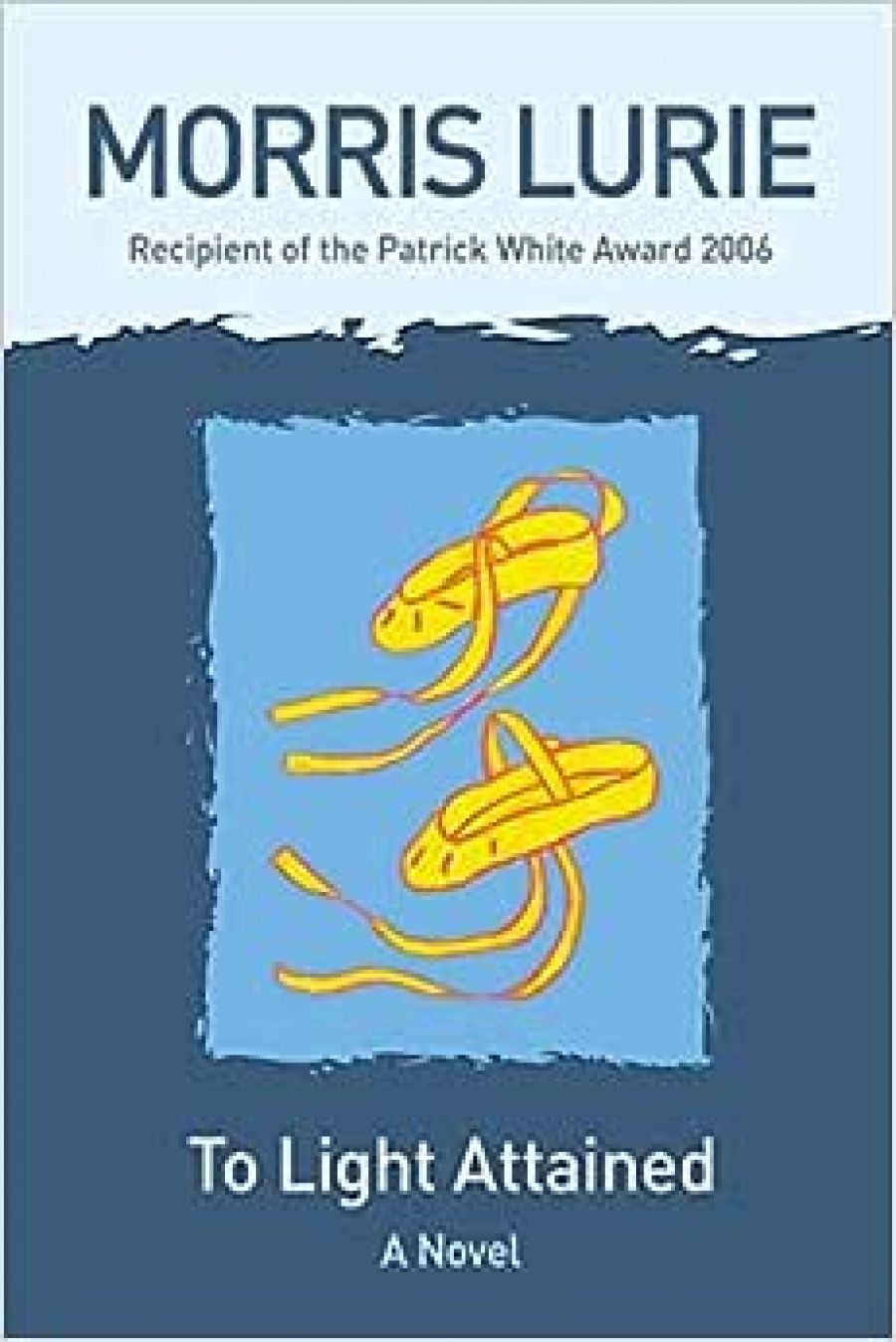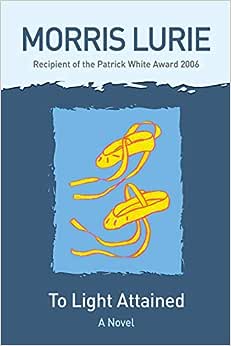
- Free Article: No
- Contents Category: Fiction
- Review Article: Yes
- Article Title: This child, no more
- Online Only: No
- Custom Highlight Text:
In 2006, forty years after the publication of his first novel, Rappaport, which featured the comic misadventures of a Melbourne Jewish antique dealer, Morris Lurie was awarded the Patrick White Award. He is one of those remarkably durable Australian writers who have extended their careers into a fifth decade. Principally known as a short story writer, published widely in Australia, but also in the New Yorker, Punch and, appropriately, the Transatlantic Review, Lurie’s latest work is his first book of fiction since Seventeen Versions of Jewishness: Twenty Examples in 2001. From Hybrid Publications, To Light Attained is, in its formal essence and central moral issue, a novella, and a fine one.
- Book 1 Title: To Light Attained
- Book 1 Subtitle: A novel
- Book 1 Biblio: Hybrid Publishers, $24.95 pb, 184 pp
- Book 1 Cover Small (400 x 600):

To Light Attained is written in a choppy, shorthand prose, but as we settle to its staccato rhythms we recognise a convincing rendition of what in the olden days was called stream of consciousness. One of the distinct features here is that Himmelman always thinks and speaks of himself in the third person, better perhaps to put his pain at a distance. There is a constant incantation of his name, of Himmelman, the word that signifies his place in society, his renown in the public realm, but privately may seem to him only a carapace around an emptiness within.
As he moves through the world, at one point reluctantly jogging, Himmelman makes mental notes that will furnish his fiction. Thus he sees ‘two beefy hims in braggy tee-shorts … drab office matters in enthusiastic ping pong bounce streaming from their athletic mouths as they over-take, run past’. Indifferent to him they surely are, but he has taken something from them as they go by, as he does later from ‘an elderly Boadicea reining before her two straining dogs’.
In urgent reminiscences of his daughter, Himmelman is ‘seeking still her alive rushing face’. His thoughts lead him back to his English courtship, in what now seems like a make-believe world with ‘toytown village’, ‘hedger-owed lanes’ and afternoon tea at the home of a fearsome matriarch. This is a deferral of recollections of his daughter and his feelings towards her, ‘the father’s doting and noting and endlessly undying critical eyes’. Himmelman feels, and unfortunately is unable to stop her from noticing, ‘a father’s accompanying pressure to suffer and see’.
There is the bribe of a trip to New York, ‘a carrot to get her to finish at school’, which includes an unhappy trip out of town after Himmelman has ‘[phoned] an affair he enjoyed years ago’; happier excursions to the ballet. This remains an enthusiasm of his child, but not the career that she once contemplated. Soon enough she will find more ways to leave him, moving out of home, dropping out of jobs and of contact with him, travelling overseas on her own. Parting from Himmelman at the Melbourne airport, she is ‘gone, swallowed, into the world’.
Lurie’s hero is a frantic man, whose name ironically suggests that instead he is blessed. He is obsessed with the need to stop his daughter from vanishing, so vainly he seeks to programme her days. The most drastic of such steps, a rite of passage in so much Australian and American Jewish fiction, is to send her to a psychiatrist, and to up the visits to four times a week. It is as nothing that the doctor tells Himmelman that he is ‘having a relationship with [his] daughter’. He must persuade himself, instead, that he is acting rightly, that this is ‘good, a good thing, a father’s proud impatience, the sooner and speedier his daughter to be healed’.
Indifferent to his torments, Himmelman’s ex-wife goes about and then sells her business, which he describes as the ‘marketplace placement’ of writers. He was not one of them, but her choice of career is barely veiled in its contempt. What Himmelman cannot do is to break out of his desperate, prematurely grieving self-absorption, and in particular into the thoughts of the others who are most important, and by whom he might be instructed: the ex-wife, the daughter. Rather, his solitary despair intensifies so that – judging with apparent impersonality – ‘he will never recover’.
Lurie’s To Light Attained is weighty (even as it might appear slight) and emotionally affecting, in increasingly discomforting ways. Part of his skill is that we never feel that Himmelman’s failing to take charge of his daughter’s fate is self-indulgent. Indeed, throughout the book, Lurie’s manner is assured and calm, even as the events that are related become increasingly out of control. The book is a triumph of form wedded to feeling. Finally, in its very last line, Himmelman is able to speak his daughter’s name, for us, for himself.


Comments powered by CComment